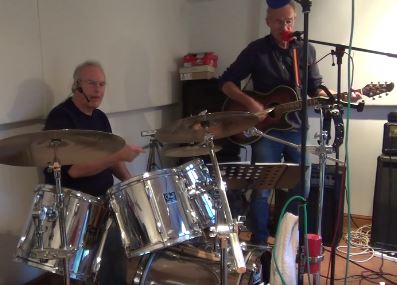
He observed(1): 'We who lived in concentration camps can remember the men who walked through the huts comforting others, giving away their last piece of bread. They may have been few in number, but they offer sufficient proof that everything can be taken from a man but one thing: the last of human freedoms—to choose one’s own attitude in any given set of circumstances—to choose one’s own way'.
Frankl’s message is ultimately one of hope: even in the most absurd, painful, and dispiriting of circumstances, life can be given a meaning, and so too can suffering. Life in the concentration camp taught Frankl that our main drive or motivation in life is neither pleasure, as Freud had believed, nor power, as Adler had believed, but meaning.
In any situation we have choice: a space between our perception of the need to act and the affordance to act in a situation and our response to it - our action to perceived affordance. In that choice lies our freedom to choose a particular action with the potential it holds for creativity. Perhaps our need to act in a way that is meaningful to us. Is a particularly powerful motivator for our creativity. Perhaps creativity enables us to close the gap between who we are and who we would like to be. It is part of the means by which we realise what we are capable of being and achieving. It's an important component of self-actualisation (2,3,4).
According to Rogers(4) personal creativity is 'the emergence in action of a novel relational product growing out of the uniqueness of the individual on the one hand, and the materials, events, people, or circumstances of his life'. In other words, the products of our creativity grow from existing things, relationships, contexts and circumstances that have meaning to us in our life.
Creativity is usually the result of making a third ‘thing’ that is meaningful to us, from two (or more) existing things rather than making something from nothing (5) We can express this as combining 1+1=3 where 3 represents a meaning that is entirely new to what existed before in the mind of the creator, and if that meaning can be communicated and adopted by others, then the meaning is distributed through that group of people.
I can relate these ideas to my current project to create a musical with my friend G which I wrote about in my January posts. In the last few weeks I have rewritten the words to many of the songs that G wrote. Songs don't grow from nothing they grow from an idea and the relationship that we have with our circumstances and our willingness to play with the idea + music and sounds to create a song that has meaning to us. It fits the 1+1=3 notion of creativity very well. G wrote a song (words+music = object 1) inspired by something in his life that he chose to work with (his response to the situation), often an incident that he then gave particular meanings to through the song. Once we had decided to create a musical (a new purpose for his songs that we shared) we created a narrative - a story around which the musical could cohere (story = object 2). I then rewrote the song or parts of the song so that it fitted and made sense in the context of the story (new words+ music = re-purposed song object 3) with a new meaning because of the context of the musical. Our creativity is in the service of creating objects and experiences that hold particular meanings for us which eventually will be shared with others. At that point we will know whether what we have produced has meaning for others.
Sources
1) Burton N (2012) 'Man's Search for Meaning: Meaning as a cure for depression and other ills.Posted May 24, 2012 Updated 24 October 2015.
https://www.psychologytoday.com/blog/hide-and-seek/201205/mans-search-meaning
2) Maslow, A. H. (1943). A Theory of Human Motivation. Psychological Review, 50(4), 370-96.
3) Maslow, A. H. (1954). Motivation and personality. New York: Harper and Row.
4) Maslow, A. H. (1962). Towards a psychology of being. Princeton: D. Van Nostrand Company.
5) Rogers, C.R., (1961) On becoming a person. Boston: Houghton Mifflin
6) McWilliam, E.L.Two Cheers for STEM; Three Cheers for Creativity http://www.ericamcwilliam.com.au/two-cheers-for-stem-three-cheers-for-creativity/
Example of a song that was rewritten then reworking the sound to make the song in a way that felt right for the circumstances of the musical - and this brings us to meaning as feeling
WORKS PARTY




 RSS Feed
RSS Feed